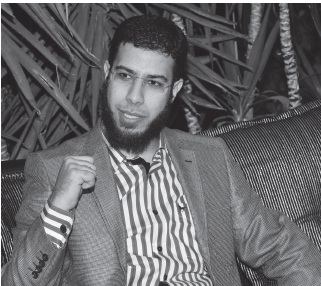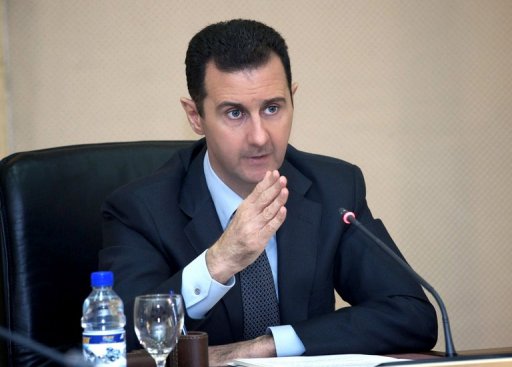
In an exclusive interview with Daily News Egypt, Nader Bakkar describes the position that Egypt’s parliament finds itself in, and how it continues to advance despite recent rulings.
Last Saturday, Field Marshal Hussein Tantawi stated that the entire parliament is dissolved. Where does al-Nour Party stand with respect to this decision?
This court ruling resembles other rulings issued during the past few weeks. Such rulings for us are politically motivated. Some people have plunged us all into a cycle of unconstitutionality and illegality ever since the outbreak of the revolution and until now.
The Supreme Council of Armed Forces is the party most responsible for Egypt entering into this dark tunnel of unconstitutionality since it was the party in charge of executive authority at the times of the parliamentary elections and before.
The media has played a role in creating this entire dilemma. Until now it has not been decided if only one third of the PA seats are cancelled, or if the entire parliament is dissolved. I believe that from a legal perspective that parliament is still up and running.
The issue is one of a difference in the legal opinions of constitutional experts. Some say that only one third of PA (the lower house of parliament) seats will be dissolved, which we believe is the case. Others interpret the ruling as meaning the dissolution of the entire Parliament.
Nevertheless, the validation of the court ruling to disband the Parliament, according to the Constitutional Declaration, is the unique power of the President, who is waiting to be elected.
If it turns out parliament has to be entirely dissolved, and new elections are held, what would be the stance of al-Nour Party? Would you participate? We will certainly participate, as would any self-respecting political party. We are on a set path that we do not plan to stray from until the very end. We will not, by any means, surrender.
Does this mean that al-Nour Party respects the rulings of the judiciary in that regard, despite your disagreement with it?
I do not want to use the phrase “respecting the judicial system” at this stage, as it can be misunderstood. What I want to say is that al-Nour Party is pursuing its goal, which is to establish political reform through parliament. Part of preserving the revolution’s gains is that all parties should be determined to take the political path until its end.
As a member of the Constituent Assembly tasked with drafting the new constitution, can you tell us what are al-Nour Party’s plans in light of the decision and its impact on the Constituent Assembly?
The Constituent Assembly has not been disbanded. This is the surprise. On Thursday, General Mamdouh Shahin, a member of the military council, denied the council’s earlier statements in that regard. In other words, a statement was issued initially to collect all associated opinions and points of views, and was then denied 5 or 6 hours later.
The Constituent Assembly survives, and its stance is even stronger than parliament’s. I am not saying this because of my membership in it; when I found out my inclusion on the substitutes list I requested to be excluded. However, due to the repetitive withdrawals I considered my membership as an issue of duty.
The Assembly was formed through an administrative decision. The court ruling, even if implemented, cannot be implemented with a retroactive effect. What was issued by parliament cannot be cancelled by a law or by a court verdict.
What do you think of the SCC’s ruling on the Political Disfranchisement Law, how do you assess it and where does al-Nour Party stand from Ahmed Shafiq’s continued candidacy for the office of president?
The court ruled with the procedures currently at its possession. There should have been a complete isolation of all figures of the previous regime from the first day of the revolution. I believe that the Political Disfranchisement Law was not targeting a specific person, but rather aimed at bringing back the rights of a people, whose regime and political and economic life were abused by those figures.
The issue was one of popular will rather than a legal issue. What we are hoping for in the presidential elections is that the people will exert a “popular exclusion” of Ahmed Shafiq, by supporting Mohammed Morsi, even if they disagree with him.
Analysts state that while some Salafists followed their notable scholars such as Sheikh Mohammed Hassaan, others followed official positions of al-Nour Party. Did al-Nour Party lose some of its power to mobilise the Salafist voting bloc?
Al-Nour party did not lose its share of the Salafist bloc or anything like that. The Salafists constitute a huge current, whilst al-Nour Party is an institution that aims at mobilising this current, based upon political decisions and ideological orientations, with more power to the ideological orientation.
We can say that between 2 and 2.5 million of the Salafists voted for Aboul Fotouh, whilst a major portion was too depressed to vote, for a variety of reasons; most importantly, the disqualification of Hazem Abou Ismail from the race.
He had been raising the ceiling of hopes for that portion of Salafists, to the point where they could not accept any alternative to him. As such, when he was side-lined, they saw the issue as unfair, and were too depressed to participate.
Furthermore, we do not have hegemony over all Salafists, we do not just push a button and have them obey. A third portion of Salafists were not convinced with our reasons for supporting Aboul Fotouh, and regarded Morsi as the closest candidate to their ideology and project.
In the event that Shafiq wins, what would be your stance?
We will continue.
What form will you continue in? Will there be a form of coalition with other Islamist groups like the Muslim Brotherhood?
I would not say coalition, since this term involves lots of semantics. What I know for sure is that we will transform into an opposition front. It will be a political opposition, not only favouring the Islamist view, but also in line with other revolutionary forces.
In clear terms, is there any intention to ally yourselves with the Muslim Brotherhood in the coming stage?
This question cannot be answered with yes or no. Our goal now is to help Morsi succeed. After that, we will be an opposition front against someone we are not convinced with. Once we are an opposition front, the gates are wide open for anyone to join.
In the event that members of al-Nour Party are invited by Ahmed Shafiq to assume cabinet posts, what will be the reaction of your party?
He invited us a couple of days ago to sit down with him to talk and we refused. I believe this stance will not change even if Shafiq is elected as president. If we accept, we will be giving him legitimacy. The truth is that we believe that the anti-revolution camp should have been politically isolated from the very beginning.
Some people are fearful that in the event of a Shafiq victory, Islamist groups will resort to violence. What is your assessment?
Absolutely not. We are very far from violence. Those who propagate these rumours about us are the same who detained and tortured people in infamous detention centres.
In light of several scandals involving al-Nour MPs, such as Rida al-Balkimi and the recent incident involving Sheikh Ali Wanis, do you believe that the reputation of the credibility of the party has been shaken?
Not at all. We stated that the issue with al-Balkimi was an individual incident, and I challenge any other party to exert this deal of severity, expressed in terminating the membership of such person, and losing a parliamentary seat. The situation with Ali Wanis is an issue of fraudulence from its very start. Until this moment the investigations are in his favour and not in her favour. There is a great deal of provocation against us.



